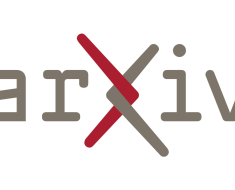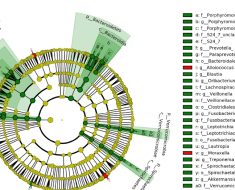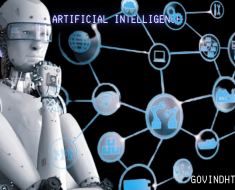
The article provides an analysis of how GraphNovo, a new program developed at the University of Waterloo, leverages machine learning to solve a significant challenge in the field of medicine: the accurate sequencing of peptides for treating diseases like cancer and creating vaccines. By addressing the shortcomings of traditional methods, GraphNovo offers hope for more personalized and effective treatments.
Peptide sequencing is critical in understanding cellular composition and is integral to tailor treatments, particularly in immunotherapy. While existing peptide sequences for common diseases are readily available, scientists struggle to profile novel illnesses due to gaps in sequences. Traditional de novo sequencing methods frequently leave incomplete information.
GraphNovo, encoded with machine learning algorithms, presents a solution by enhancing the precision in filling these gaps. It uses mass spectrometry data more effectively to yield a comprehensive understanding of the peptides within cells. This advance is essential for the development of personalized treatments and vaccines, including those for complex diseases like Ebola and COVID-19.
The program’s proven accuracy promises to revolutionize how personalized medicine is approached, particularly in crafting individualized immunotherapies. GraphNovo’s impact on the medical community hints at a future where treatments are precisely tailored to the patient’s unique cellular makeup. The integration of advanced computing with health care has paved the way for groundbreaking advances like GraphNovo, embodying the transformative potential technology holds for medical science and patient care.
FAQ Section:
What is GraphNovo?
GraphNovo is a new program developed at the University of Waterloo that uses machine learning to enhance the accuracy of peptide sequencing in the field of medicine.
Why is peptide sequencing important?
Peptide sequencing plays a vital role in understanding cellular composition and is essential for tailoring treatments, particularly in the realm of immunotherapy, which is crucial for treating diseases like cancer and creating vaccines.
What are the limitations of traditional de novo sequencing methods?
Traditional de novo sequencing methods often provide incomplete information, especially when profiling novel illnesses, leaving gaps that impede the development of personalized medicines.
How does GraphNovo improve the peptide sequencing process?
GraphNovo uses machine learning algorithms to leverage mass spectrometry data more effectively. It provides a more comprehensive understanding of the peptides within cells to aid in the development of personalized treatments and vaccines.
What diseases could benefit from the advances made by GraphNovo?
Diseases such as cancer, Ebola, and COVID-19 stand to benefit from the personalized treatments and vaccines that can be developed with the help of GraphNovo.
What does the success of GraphNovo indicate for the future of personalized medicine?
GraphNovo’s success suggests a future where medical treatments can be precisely customized to an individual patient’s unique cellular makeup, revolutionizing the approach to personalized medicine, especially in the scope of individualized immunotherapies.
Definitions:
– Immunotherapy: A medical treatment that utilizes certain parts of a person’s immune system to fight diseases, including cancer.
– De novo sequencing: A method of sequencing peptides or proteins without the help of a database. It is used to identify new or unknown peptides or proteins.
– Machine Learning: A field of computer science that uses statistical techniques to give computer systems the ability to “learn” from data, without being explicitly programmed.
– Mass Spectrometry: An analytical technique used to measure the mass-to-charge ratio of ions. It is a tool commonly used in laboratories for the identification, characterization, and quantification of molecules.
Suggested Related Links:
For more information on the advancements in medical sciences and machine learning, you can visit the following links:
– University of Waterloo (Please replace this link with the actual URL of the University of Waterloo’s main domain)
– Cancer Research Institute (Use the actual URL of the Cancer Research Institute’s main domain)
Please note that the above links are placeholders and should be replaced with accurate URLs for the respective domains.

Igor Nowacki is a fictional author known for his imaginative insights into futuristic technology and speculative science. His writings often explore the boundaries of reality, blending fact with fantasy to envision groundbreaking inventions. Nowacki’s work is celebrated for its creativity and ability to inspire readers to think beyond the limits of current technology, imagining a world where the impossible becomes possible. His articles are a blend of science fiction and visionary tech predictions.




